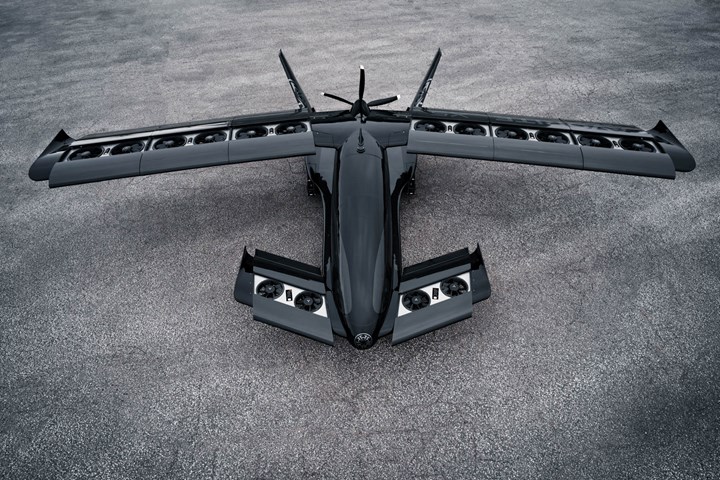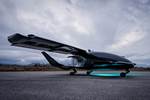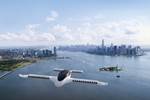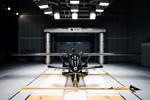Horizon Aircraft shifts to seven-seat hybrid electric eVTOL concept
Led by industry needs and following successful flight tests of its five-seater 50% scale prototype, the company aims to scale up for future production.

Horizon Aircraft’s X5 eVTOL prototype. Photo Credit: Horizon Aircraft
Horizon Aircraft (Toronto, Canada) announced on Sept. 26 that it is now targeting future production of a seven-seat capacity model, called Cavorite X7, for its hybrid electric vertical takeoff and landing (eVTOL) aircraft
Initially, the ocmpany had planned to design and produce a five-seat aircraft, called Cavorite X5. However, due to positive flight testing results of its 50% scale prototype, as well as aerodynamic, structural and electrical analysis, the company now says it can expand its initial prototype to include room for one pilot and six passengers.
In addition, potential customers in the medevac, business aviation and commercial cargo sectors have advised the company that larger aircraft with lower passenger costs better aligned with their needs.
The Cavorite X7 aircraft would have a gross weight of an estimated 5,500 pounds with a projected useful load of 1,500 pounds. The aircraft would also have an estimated maximum speed of 250 miles per hour and an average range of over 500 miles with fuel reserves. Horizon believes that this experimental aircraft, if eventually licensed for commercial use, would be well-positioned to excel in medical evacuation, critical supply delivery, disaster relief, special military missions. The aircraft is intended for regional air mobility for moving people and cargo 50 to 500 miles.
The Cavorite X7 is being designed with a hybrid electric power system, designed to re-charge its batteries in-flight and post-flight.
The Cavorite X7 is expected to fly 98% of its mission in a very low-drag configuration like a traditional aircraft, said to be safer and enable easier certification. most of the time as a normal aircraft is also safer and will make the aircraft easier to certify than other radical new eVTOL designs. The company is continuing the testing of its 50%-scale aircraft that it believes will reduce technical risk moving forward as it continues to develop its full-scale aircraft. To help enable this development, Horizon has been awarded several grants and a U.S. Department of Defense research and development contract award.
“The shift to a seven-seat aircraft has been discussed since the beginning of our hybrid eVTOL initial concept. It’s a size that just makes sense commercially. We are very confident our unique fan-in-wing technology can support this new and larger platform and our testing results have provided us with confidence that we can potentially scale to an even larger aircraft,” says Brandon Robinson, CEO of Horizon Aircraft.
Related Content
-
Paris Air Show 2023 highlights
The Paris Air Show, one of the largest aerospace trade shows in the world, returned for the first time since 2019 and proved that the global aviation industry industry is very much alive and kicking.
-
Composite sidewall cover expands options for fire-safe rail components
R&D project by CG Rail explores use of carbon fiber-reinforced thermoplastics and recycled manufacturing scrap to meet fire safety, weight and volume targets.
-
Composites opportunities in eVTOLs
As eVTOL OEMs seek to advance program certification, production scale-up and lightweighting, AAM’s penetration into the composites market is moving on an upward trajectory.

.jpg;width=70;height=70;mode=crop)














